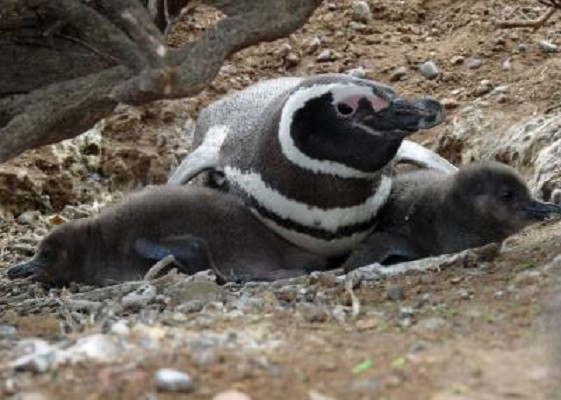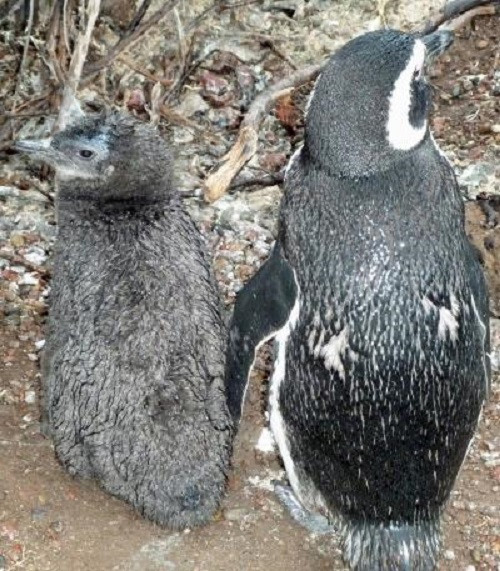Climate Change Killing Thousands of Penguin Chicks

Climate change is directly responsible for the deaths of penguin chicks because of extreme rainstorms and scorching heat, experts have said.
Thousands of penguin chicks are also killed indirectly through climate change because of a lack of food sources, meaning they starve to death.
A study by researchers at the University of Washington found climate change is killing of largest colony of Magellanic penguins in South America.
Chicks eventually get too big for their parents to sit over them protectively, but at the same time they have not developed their waterproof feathers that protect them from heavy rain.
As a result, they die from hypothermia. In extreme heat, the lack of feathers means they cannot venture into the water to cool down. Of the 200,000 pairs of penguins, just 35% of chicks will make it past their first year.
Around 40% died from starvation, with climate change accounting for 7% on average. However in some years extreme weather events were responsible for the deaths of up to 43% of all chicks.

Published in PLOS One, lead author Dee Boersma said: "It's the first long-term study to show climate change having a major impact on chick survival and reproductive success."
Ginger Rebstock, co-author of the paper, said: "We're going to see years where almost no chicks survive if climate change makes storms bigger and more frequent during vulnerable times of the breeding season as climatologists predict."
An additional problem facing these penguins is that parents are arriving to their breeding site later and later each year, because their fish are likely arriving later. This means chicks are more likely to be born during stormy or hot weather.
Boersma said starvation and extreme weather will only increase as the effects of climate change become more apparent.
He said: "Starving chicks are more likely to die in a storm. There may not be much we can do to mitigate climate change, but steps could be taken to make sure the Earth's largest colony of Magellanic penguins have enough to eat by creating a marine protected reserve, with regulations on fishing, where penguins forage while raising small chicks."
The authors note that climate change will be killing many other species living in the Chile-side of South America: "Increasing storminess bodes ill not only for Magellanic penguins but for many other species," they said.
© Copyright IBTimes 2025. All rights reserved.






















